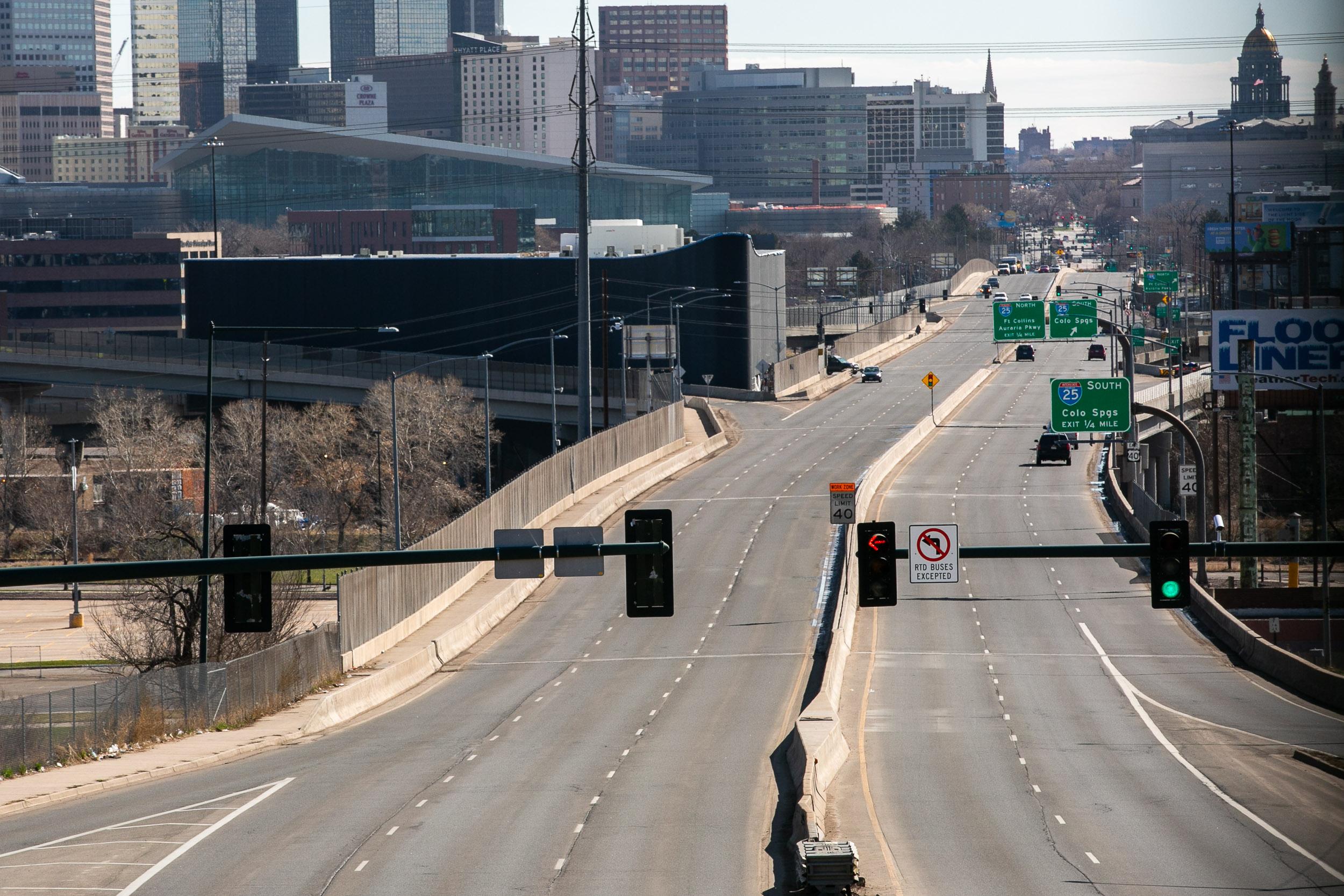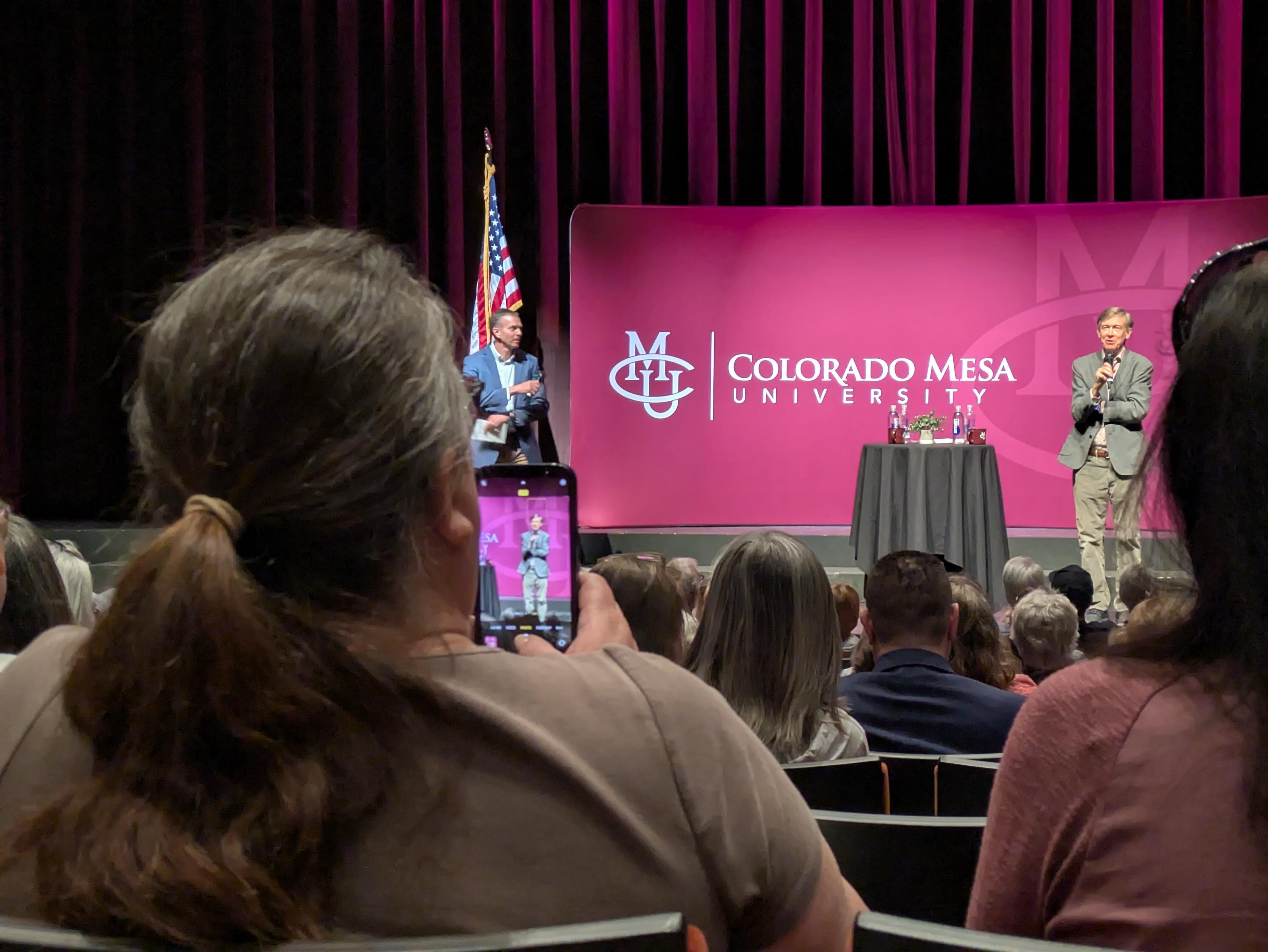
Updated March 26, 2020 @ 11:43 a.m.
Gov. Jared Polis issued a mandatory stay-at-home order for all residents of Colorado on Wednesday to take effect Thursday, March 26 at 6 a.m., and to last through April 11 unless rescinded or modified.
Under the executive order, residents must remain at home, and only leave their home to engage in activities or perform tasks critical to their health and safety, or to the health and safety of their family or household members or to go to or return from "critical work."
According to the order, residents can leave their home to:
- Obtain food and other household necessities for themselves and their family or household members.
- Deliver those services or supplies to others, such as food, pet supply, other household consumer products, and products or equipment necessary to maintain the safety, sanitation, and critical operation of a residence.
- To engage in outdoor activity, such as walking, hiking, nordic skiing, snowshoeing, biking or running. For purposes of outdoor activity, state parks will remain open to the public to engage in walking, hiking, biking, running, and similar outdoor activities but all playgrounds, picnic areas, other similar areas conducive to public gathering and attended areas shall be closed.
- To perform work for critical industries.
- To care for a family member, a vulnerable person, or pet in another household, or to care for livestock kept at a location other than an individual's home.
- To seek medical care
Individuals experiencing symptoms of COVID-19 have been ordered to self-isolate until their symptoms cease or until they have a negative test result.
Although the state order is now law and "it's illegal to break the law," the order did not say how the new law will be enforced.
"The Colorado National Guard will be supporting logistics, transportation, and medical response efforts. The Guard will not be enforcing this order," the document stated.
An amended order issued Thursday said "local authorities are encouraged to determine the best course of action to encourage maximum compliance. Failure to comply with this order could result in penalties including a fine of up to $1,000 and imprisonment in the county jail for up to one year." However, law enforcement authorities see their role as more about education than enforcement.
Critical businesses are exempt from the order but encouraged to comply with social distancing guidelines such as implementing tele-work, staggered schedules or re-designing workplaces to create more distance between workers.
- As Colorado Coronavirus Cases Climb, ‘There Is Clearly A Surge Here’
- Restaurants Balance Staying Open With Staying Safe In A New World Centered Around Takeout And Disinfectant
- Can I Get Unemployment In Colorado? It’s A Crazy Situation, But We’re Answering Your Questions
- FAQ: Got Questions About Coronavirus? We’ve Got (Some) Answers ( Read in English | Leer en Español)
- Next, We Just Need To Move 900,000 Colorado Students To Remote Learning
The order defines "critical businesses" as those related to healthcare, utilities, food cultivation, medical equipment or supply manufacturing, news media, banking, law enforcement, construction, defense and child care services that support the workers in those industries.
"Critical retail" shops that will remain open are grocery stores, gas stations, convenience stores, liquor stores, restaurants with takeout, marijuana dispensaries, pet stores, gun shops, hardware stores, and stores that sell household consumer products such as cleaning products and personal care products.
The amended order banned all public and private gatherings of any number of people occurring outside a home, except for "essential activities," and banned all travel, including, but not limited to, travel by automobile or public transit, except for "necessary travel."








